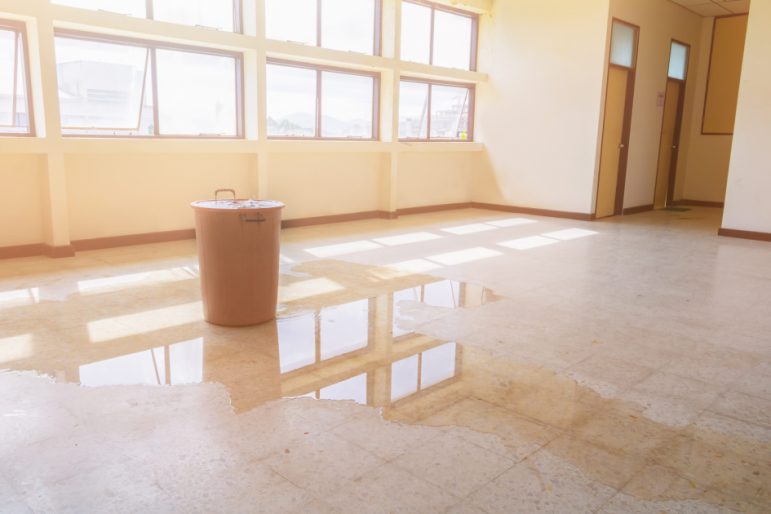Flooding is one of the most common natural disasters, causing billions of dollars in property damage each year. Even if a business is not located in a designated flood zone, there are a variety of smart steps facility managers can take to prepare commercial properties for the possibility of flood damage. And if flooding does occur, there should be a plan in place to mitigate any damage to a facility.
Assess flood flaws
One of the easiest flood risk assessments is to identify potential water entry points around your building. This includes sewer drains, holes for pipes and vents, and structural defects. Depending on your expertise, it can be helpful to include a plumber or structural engineer in this process.
Prepare your building
It’s said the best defense is a good offense. That thought applies where flooding is concerned.
Assess where and how important assets and goods are stored. It is wise to store these items on shelving or on pallets rather than directly on the ground.
Sandbags are an inexpensive investment that can help to keep water out of vulnerable spots in your building. Another inexpensive resource includes a wet/dry vac to address small areas until a professional arrives.
Even if it is not required, you should consider investing in a sump pump. Sump pumps are installed on low areas on the ground floor of a building and draw out unwanted water. These devices help protect the structure from serious water damage and assist in eliminating standing water which can lead to mold, mildew, and unpleasant odours.
Dry floodproofing is another method to protect your building. This technique involves the application of a waterproof sealant to the inside or outside walls to make them impermeable. Sealants can also be used on entry points such as windows and doors.
Flood protection shields are another option. These devices create a watertight barrier around doors and windows. These shields are put in place when a flood is imminent.
Wet floodproofing is a great consideration for buildings located in an area that is prone to flooding. It is recommended that you erect permanent barriers or walls that will help keep water confined or direct it to certain areas of the building.
Emergency action after flooding
If your business facility is impacted by flood damage, it is imperative to fix the damage quickly to reduce any disruption to your customers and employees, as well as the impact on your bottom line.
You should identify a water damage restoration company that shares your sense of urgency and keep their contact information on hand. An effective plan of action will result in the successful restoration of your property.
A professional restoration company will thoroughly assess the flood damage and help you understand its severity, and possible hazards, and determine what can be salvaged and restored.
Using powerful pumps and extraction units, technicians will remove any remaining water to help prevent the migration of water in the structure and reduce drying time.
After most of the water has been extracted, specialists use industrial drying equipment to remove moisture that has saturated the structure and increased the indoor relative humidity. Technicians will visit your property regularly to ensure everything in the facility is drying properly and to adjust as needed.
After the facility is dry, you will need to address the next important phase of the water restoration process: cleaning. Floors and furniture will need to be professionally cleaned, sanitized, and deodorized.
If left untreated, excess water can damage your property and negatively impact the health of building occupants. Water damage that is not properly dried and cleaned after the incident can increase the likelihood of harmful mold growing in and under the building.
Flooding can happen quickly and without warning. Adding a water damage restoration strategy to your facility’s emergency management plan allows you to proactively prepare so that you can minimize the impact on your business.
Steve Willis is the President of AdvantaClean, the nation’s leading franchise specializing in emergency water restoration, mold remediation, and indoor air quality services.








